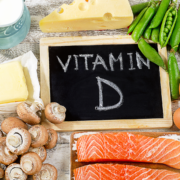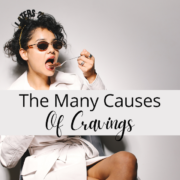Smells That Hinder Your Health
What smells do you encounter regularly during the day? The smells of foods you eat? Or smells from your clothes when they are fresh from the laundry? Or perhaps from your shampoo, soap, and other hygiene products? I would imagine that it hasn’t occurred to you that there may be smells that hinder your health.
It’s a sad fact that many of the smells we encounter each day are from chemicals that are toxic to your body. One of the more prominent chemicals is phthalates (pronounced fthal-eyt) which are endocrine disrupting chemicals. That’s a fancy term for chemicals that mess with your hormones.
What Are Phthalates?
Phthalates are used as plasticizers in shower curtains, rainboots, IV tubing, plastic wrap, and any number of flexible plastic containers and tubing. They are also fixatives for fragrances in perfumes, colognes, soaps, shampoos, and air fresheners. We are repeatedly exposed to phthalates every day.
What are their effects on the body? Perhaps of greatest concern is that they can induce reproductive disorders, including altered puberty, fertility disorders, and potentially cancer.
As hormone-mimickers, phthalates affect both actual hormone levels and the function of hormone receptors. There’s a compelling case that these chemicals play a role in the current epidemics of infertility, low testosterone, reduced sperm counts, early puberty, debilitating perimenopause, and more.
Children Are More Susceptible
Scientific studies have demonstrated that there are even stronger effects on infants and children. These include increased blood pressure and insulin resistance, the precursor to Type 2 Diabetes. Epidemiologic studies have also shown that exposure to phthalates affects children’s neurodevelopment and behavioral outcomes.
In 2017 the Consumer Product Safety Commission banned the use of 8 forms of phthalates in children’s toys and child-care items. It’s a start, but there are still 19 other forms of the chemical used in a wide variety of products.
Is it hopeless? Is there anything we can do? I believe that there is.
Reduce Exposure
You can start by reducing your exposure. Where do you encounter phthalates most often? I would imagine it would be through laundry products, perfumes or colognes, and air fresheners. Current standards in the US do not require disclosure of the potent chemicals that are included in many of these trademarked fragrance formulas.
Are you using laundry soap or fabric softeners that promote long-lasting scents? That’s phthalates in action. Are you using dryer sheets? They contain lots of phthalates and other chemicals that stay on your clothes and absorb through your skin.
Alternate Approaches
In place of fabric softener, you can add white vinegar to your wash, using the softener dispenser. It will have a similar effect in softening the fabrics and will not leave the smell of vinegar on your clothes.
In place of dryer sheets, you can use wool dryer balls that will help tumble the clothes and prevent static cling. A few drops of essential oils on the dryer balls before you start the load will give your clothes a pleasant scent that won’t interfere with your hormones.
You can also avoid artificial air fresheners, whether sprayed in the room, plugged into a wall or hung in your car. These are optional products that increase the toxic burden on your body when you use them. An alternative is diffusing essential oils in your home or car, or opening the windows and airing out.
Promote Elimination
What about getting phthalates out of your body after exposure? Your body is working daily to detox chemicals and other foreign substances that invade. Normal routes of elimination of toxins are through our breath, our skin, or our urine or stool.
One study demonstrated that sweat is one of the more effective ways to excrete phthalates. As you reduce your exposure to phthalates, you can help your body excrete them by sweating. Exercise or sauna will help here. Be sure that you shower after sweating to rinse the sweat (and whatever comes out) off your skin.
I realize that this isn’t the normal subject you would read about at this time of year, but I felt strongly that this is important. Those long-lasting smells are just not worth it! You can begin making changes that will improve your health in the coming year. Your body will respond as you make changes, and this is an important change for your health.










